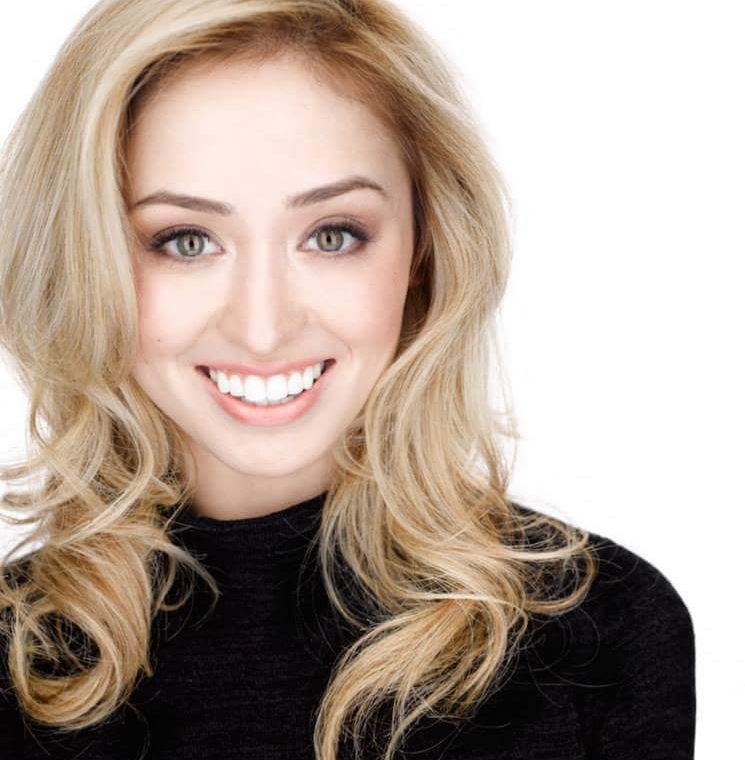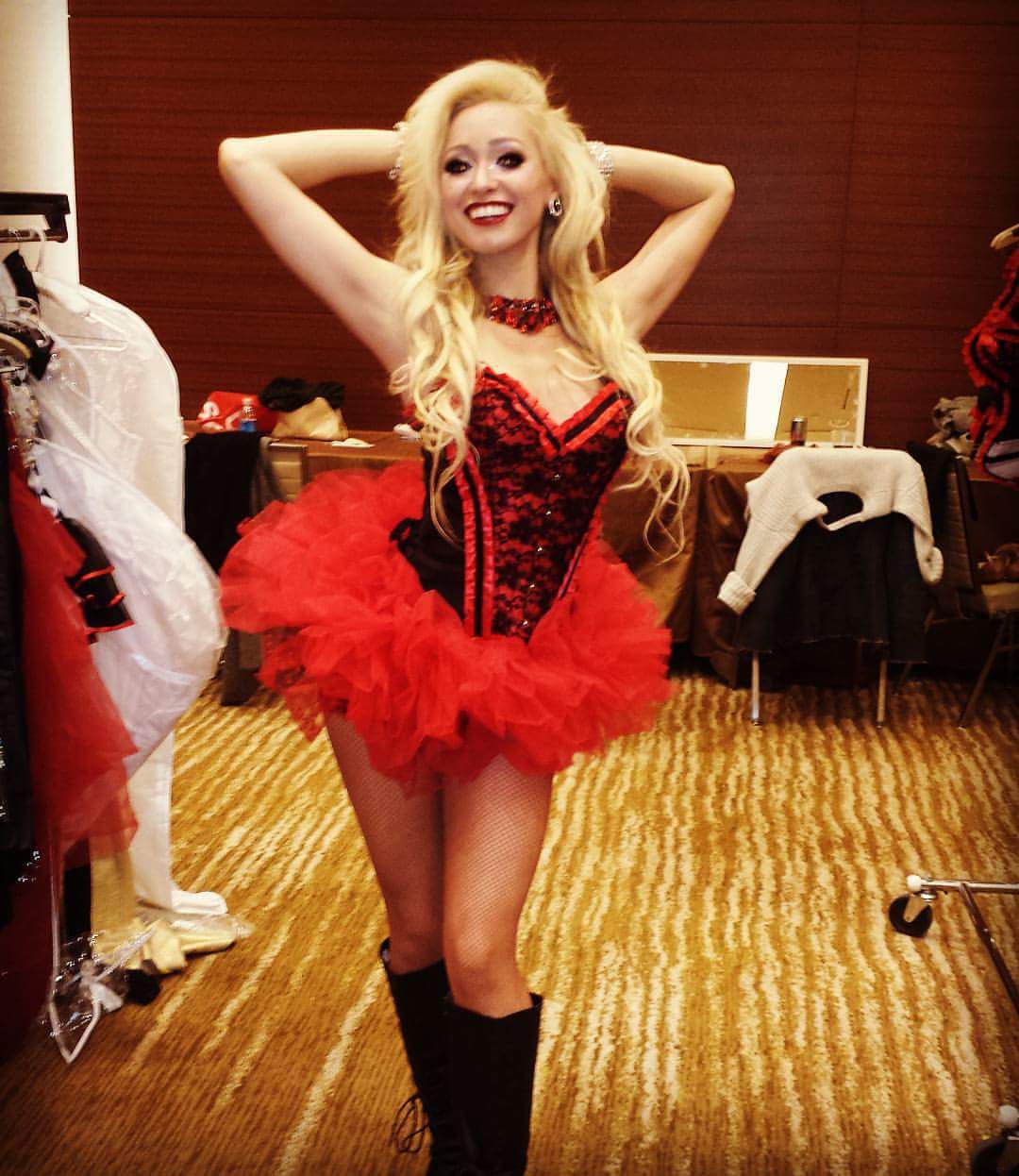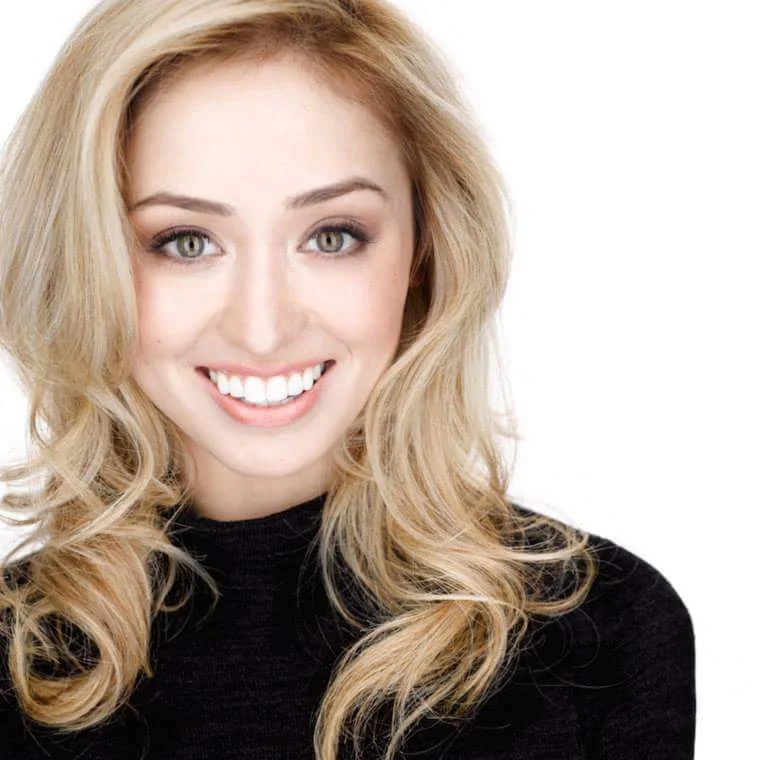Blonde Ambition
By Ashley E. Matthews
When you think of "blonde" a few well known phrases may suddenly come to mind:
"Gentlemen prefer blondes"
"Blondes have more fun"
"Dumb blonde"
"Blondes are white"
Okay, okay, maybe that last one isn't so well known—but tell me that the idea of a blonde bombshell in your head doesn't automatically conjure up a fair-skinned, peroxide-laden Marilyn Monroe? A busty Pamela Anderson? A Barbie doll with the perfect hairdo? A blue-eyed Playboy bunny with iconic Bunny ears perched on top of a platinum crown? Blonde beach goddesses bronzing their naturally white skin on the Malibu sand? Sure, maybe not *all* the images you think of may be of a Caucasian person with yellow tresses...but, I'd wager a bet that most of them probably were right?
My name is Ashley, and I have been some shade of blonde for the better part of a decade. I am also a person of Asian heritage, which would make me a "blonde Asian." Throughout my time being proudly blonde I have learned a lot about how being a "not-exactly" white person with bleached locks is. I've also seen how it can be perceived by people around me, the industry, and the impact it can have socially. Blonde is much more than “just” a hair color.
I started dying my hair 9 years ago, and I can easily say that, for as long as I can remember, I LOVED blondes and the idea of being blonde. Whenever there was a blonde or brunette character in a movie or cartoon or even girl group, I'd pick the blonde as my favorite. You can BET I loved Betty over Veronica, Cinderella over Belle, Baby over Posh Spice, and Marilyn over Jane Russell. I never quite knew why, but I caught on early that the media was trying to tell us that blondes were more desirable, more popular, the pinnacle of Western beauty standards: the whole shebang. And, I wished I could be like that.
I was born with dark black, straight hair. As I grew older, it morphed into a dark brown, curly/unruly and frizzy mop that I absolutely inherited from my Caucasian father known for his ginger “‘fro” in his youth. But the color: that was all from my Chinese mother. Though it wasn't raven black like hers or other East Asian folks, it was dark, and in my mind it was boring, undesirable, mousy, and every other unwanted trait it could be. I never thought being blonde was an option for me: only pretty white girls on TV or in magazines were born that way. I used to use Sun In like it was going out of style: leaving myself with orange, frizzy tresses rather than a striking platinum coiff, and didn't think I'd ever be Baby Spice. I was stuck being Sporty in every playgroup because my hair was dark.
Then, one day, my relationship with light hair began. I had a job at a theme park, and because of my position as a "swing" rather than a full time dancer, I did not get my own wig design, but rather one that was approved for all swings to wear: these wigs were blonde. The minute I put it on my head and saw myself in the mirror it was like I was in a makeover scene from a 90's chick-flick, and I swear I could hear "I Feel Pretty" playing in the background on repeat. I finally felt beautiful and unique- the striking bombshell who was like the girls I always idolized. Then, a couple of weeks later, my new found joy came crashing down. The director of the show came to watch, and immediately had a wig designer come find me after the first show to take my blonde wig away and replace it with a dark brown, straight wig with blunt bangs. I wanted to cry.
They said it was because "blonde didn't suit me and I needed a darker wig for my darker features." I didn't know what "darker features" meant at the time, but I now know that it meant a light blonde wig "didn't look right" on a non-white person. I booked myself an appointment with a hairstylist that week, told them to make me blonde, and never looked back. Month after month I would return to re bleach the brown regrowth and try to be as blonde as possible, because I KNEW I looked good with it and most importantly because I LIKED it, and I was going to convince everyone who thought my "dark features" belonged to brown hair wrong.
Throughout the years, I noticed similar comments, opinions and situations about my hair color would pop up frequently: complete strangers and friends alike saying things like "well you're not a natural blonde obviously," "you look better dark," "you shouldn't dye your hair," and more. Just a couple months ago, I was paying for a coffee and the cashier (who happened to be talking to his coworker about blonde hair) said to me "like you: you're not a natural blonde." It was not a question, it was .a statement. He was telling me. He then got incredibly defensive when I told him that had been entirely rude and offensive, and he continued to brush me off as a “fake blonde.” To this day, it blows my mind. I can guarantee you that MOST "blondes" as you see them portrayed in the media are not born with that color. They get help from hair salons and bleach just like I do to brighten up darker hair, in fact, many of them are probably born with the EXACT same dark hair I was,- but because of their "light features" (i.e., visibly white) no one questions it or offers their unsolicited beauty opinions. The queen of all blondes, the legendary Marilyn Monroe, was born very much a brunette as Norma Jeane,and I can guarantee no one ever make a stink about her being a "fake blonde." Yet in my own blonde journey I have experienced passive- hostility from people around me, and even noticed a sense of "ownership" of the concept of blonde hair that I couldn't be a part of due to my ethnicity alone.
On the other side of the spectrum, when people who appear to be of full Asian heritage bleach their mops, it's seen as "trendy". Think of the K-Pop and J-Pop Idols with billions of adoring fans and hair that is typically either snow white or a rich honey blonde. No one questions these “looks.” They are a statement that gives the person a fashionable "edge". Even now, in places like mainland China, Taiwan, and Japan there is a movement of the younger generations bleaching their hair platinum white as a statement against being perceived as “obedient.” It is an act of rebellion against older and more homogenous generations, and that movement has been seen taking storm here in America as well. You can go downtown in Manhattan and see dozens of Asian fashionista, social media influencer types: all with some shade of blonde, platinum white to ombre color melt hair. It has become part of their fashion aesthetic, and they have become the complete opposite of the generic "Asian good girl," They are actively flipping the stereotype of silky black "exotic" Asian hair, to take ownership of a hair color that many see as "exclusively white" as their crowning achievement.
Though seeing those edgy, fashionable, K-Pop-inspired Blonde Asians may be becoming more normalized, those of us in-between, as with many facets of Hapa/Mixed life, can tell you we have our own set of problems. Because we already face a lot of "not being enough" of either side of our heritage, changing our hair color proves challenging, as it makes it even harder for people to put us in boxes or to label us. And, though they may not admit it, that can be intimidating to many.
Whenever I personally challenge anyone who makes an unwelcome comment about my "unnatural" hair with the fact that a white colleague can do the same (go from brunette to blonde, blonde to redhead, or even blonde to black) and experience no criticism or even questions, the pushback is typically always still there, and it can be a surprisingly hurtful thing. It continues to make those of us in the “in-between” feel unwelcome or that we don't fit in yet another part of our lives. Those with "light" Caucasian features can be any hair color they want no questions asked, those with more visibly "ethnic" features can choose to make a statement with light hair and bleach in a world of fashion and trends, but those of us who don't quite meet either of those requirements continue to have our own blonde ambition, hoping that others can accept our own statement, our own aesthetics and beauty standards, and maybe one day let us live up to those iconic blonde phrases and images just like anyone else—even if it may cost us more time at a salon and in hair masks!
Ashley E. Matthews is a Taiwanese-Chinese/Canadian actress, dancer, foodie and cat whisperer currently calling NYC home. She is passionate about sharing and having the Asian and Hapa experience with others while bringing awareness to diversity and representation in the media and onstage with her writing and activism. She is also very passionate about Taiwanese Beef Noodle Soup and Boba milk tea. Follow her @ashleyematthews.








By Sam Tanabe
“When Hapas see my pop-up shop, even if they don’t decide to get anything, I can tell that having a brand that is dedicated to them makes them happy and excited because it’s creating a space where they know they will always be accepted.”